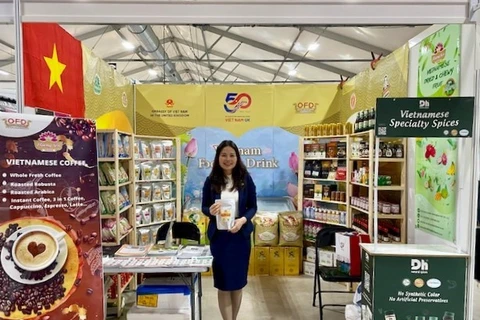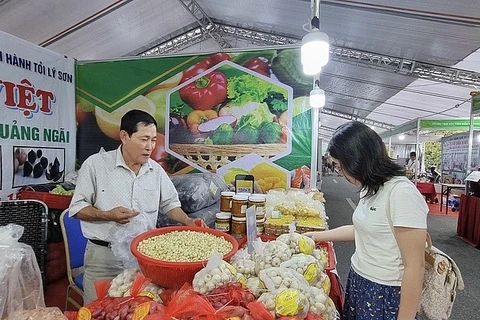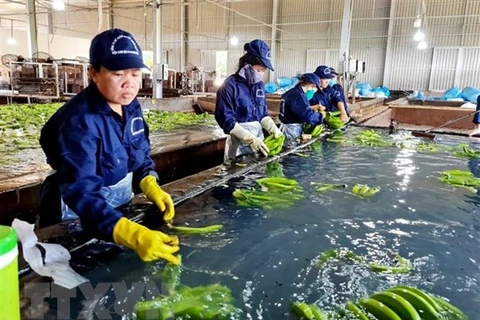Hanoi (VNA) – As requirements for import rules of agricultural products in the EU market become stricter, authorities advise exporters to continuously update information on the regulations and maintain close connectivity with importers.
Each year, Vietnam earn billions of US dollars from exporting farm produce. However, importers are becoming more and more choosy, requiring domestic firms to invest more in their technology and production process for sustainable exports.
Stricter requirements
Recently, the European Parliament and the European Council have adopted the EU Deforestation-free Regulation (EUDR), focusing on preventing the import of products that cause deforestation and forest downgrading. The Regulation defines a product as deforestation-free when the product itself, its ingredients or its derivatives were not produced on land subject to deforestation or forest degradation after the cut-off date of December 31, 2020. This cut-off date has been suggested to minimise disruption to international supply chains.
With this regulation, a number of agricultural products of Vietnam, especially coffee, need positioning information (GPS) to each garden to be allowed to enter the EU market. When the regulations come into effect by the end of 2024 or the beginning of 2025, it will directly affect the supply chains of the industry.
Nguyen Nam Hai, Chairman of the Vietnam Coffee-Cocoa Association said that the new regulation of the EU is tough for farmers. He explained that the majority of farming households own small farms of less than 0.5 hectares, making it hard for them to prove the origin of their farm land, while the cost for the process is high.
However, for businesses who have made systematic investment in their production chain, the regulation is a great chance for them to enhance the value of their products and trademark, Hai said.
The EU has been one of the largest coffee markets of Vietnam with consumption of over 40% of Vietnam’s total export volume. Last year, Vietnam shipped 689,049 tonnes of coffee worth nearly 1.5 billion USD to the EU, up 25.8% in volume and 45.4% in value compared to 2021.
Le Duc Huy, General Director of Simexco Dak Lak said that local firms have made preparations for the EU regulation. In 2012, they cooperated with the Netherlands’ Sustainable Trade Initiative (IDH) in implementing asustainable agricultural project in the Central Highlands region, including Lam Dong. Huy said that the EUDR will help Vietnam enhance competitiveness in the world market compared to other coffee suppliers who have not prepared for it.
Building sustainable value chains
According to the Ministry of Industry and Trade, the EU-Vietnam Free Trade Agreement (EUFTA) that has been effective for three years has created momentum for import-export activities of Vietnam, and the agriculture sector in particular.

Many businesses have invested in updating technologies for better origin traceability of their agricultural products (Photo: VietnamPlus)
The deal has helped Vietnamese fruits enjoy 94% of total tax lines in the EU market, making Vietnamese products competitive compared to those from other countries.
According to Eurostat -the statistical office of the European Union, Vietnam is the 59th largest fruit and vegetable supplier to the EU in the first 11 months of 2022 with 74,000 tonnes worth 215 million USD. Last year, the EU spent about 235 million USD on importing agricultural products from Vietnam.
The Ministry of Industry and Trade advised domestic exporters to strictly meet all requirements in the EU market, especially those on food safety, plant quarantine and labeling.
As the regulations change regularly, Vietnamese exporters should continuously update the information and maintain a close connectivity with importers to ensure that they meet all the requirements.
“All agricultural facilities of the EU are transforming towarda green direction. Therefore, there is no reason why Vietnamese businesses are outside of these regulations, as this is an inevitable trend in the future,” Tran Ngoc Quan, Vietnam Trade Counselor in Belgium and EU said./.
























